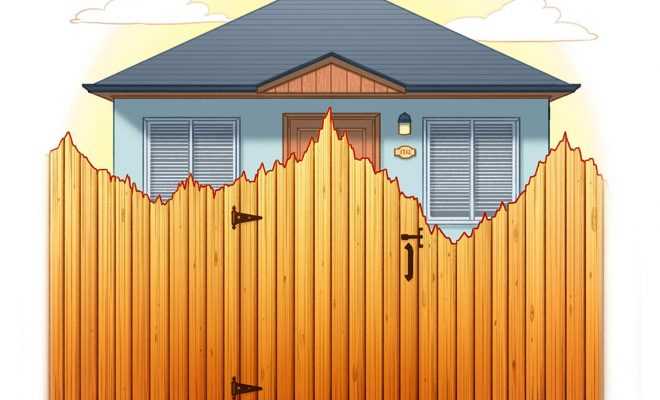February 11 mortgage rates

[ad_1]
Freddie Mac, the federally chartered mortgage investor, aggregates the rates of about 80 lenders across the country to establish weekly average national mortgage rates. It uses rates for high quality borrowers with strong credit scores and large down payments. Due to the criteria, these rates are not available to all borrowers.
The survey is based on home purchase mortgages, which means refinance rates may be higher. The price adjustment for refinancing operations that went into effect in December adds to the cost. The adjustment, which applies to all Fannie Mae and Freddie Mac refinancings, is 0.5% of the loan amount. This equates to $ 1,500 on a loan of $ 300,000.
The 15-year fixed rate average slipped to 2.19% with an average of 0.6 points. It was 2.21% a week ago and 2.97% a year ago. The five-year adjustable rate average edged up to 2.79% with an average of 0.2 points. It was 2.78% a week ago and 3.28% a year ago.
“Mortgage rates have remained stable this week, holding themselves firmly to levels just above all-time lows,” said Matthew Speakman, an economist at Zillow. “In recent weeks, mortgage rates have risen, responding to the progress of the fiscal stimulus bill and signs of a moderate improvement in the economy. However, rates have stabilized in recent days, edging up following a poor jobs report and slipping on Wednesday after inflation data showed price pressures remained subdued.
The 30-year fixed rate average hit its highest level in months to start the year, rising to 2.79% in early January, a one-week gain of 14 basis points. (One basis point equals 0.01 percentage point.) But since then, he’s been treading water.
“After a rocky start to the year, mortgage rates have stabilized lately and seem to be waiting for more signals from the economy’s way forward before they are definitely heading both ways,” Speakman said. “In the short term, this way forward will largely depend on the fate of the next wave of budget cuts and the development of the covid-19 vaccine.”
Bankrate.com, which publishes a weekly mortgage rate trend index, found that nearly half of the experts surveyed expected rates to stay roughly the same over the coming week, while more than a third expected them to increase.
Mitch Ohlbaum, a mortgage banker at Macoy Capital Partners in Beverly Hills, Calif., Expects rates to hold.
“We see a lot of economic data coming from all fields, and it just isn’t consistent enough to get a sense of where the economy is in the country,” he said. “We see house prices skyrocketing on one side and hiring and re-hiring well below expectations on the other side. The new administration is working on a major stimulus package to move the economy forward, yet the stock market is booming. As I have said in the past, the market hates uncertainty, and that is what we are going through right now. “
Meanwhile, mortgage loan applications fell last week. According to the latest data from the Mortgage Bankers Association (MBA), the composite market index – a measure of the total volume of loan applications – fell 4.1% from the previous week. The buy index fell 5% from the previous week, but was 17% higher than a year ago. The refinancing index was down 4 percent but was 46 percent higher than a year ago. The refinancing share of the mortgage business represented 70.2% of applications.
“Mortgage rates have risen in recent weeks, driven higher by the likelihood of further fiscal stimulus and expectations that covid-19 vaccines will slow the pandemic and boost economic growth later this year,” said Bob Broeksmit , President and CEO of MBA. “The rate hike led to a drop in refinancing last week, but activity is still well above levels of a year ago. Purchase requests also continue to increase on an annual basis, and the average loan balance has once again hit a new high of $ 402,200. Demand from homebuyers across much of the country is robust this winter, and activity is strong in the upper end of the market, where housing supply is less constrained. “
The MBA also released its Mortgage Credit Availability Index (MCAI) which showed an increase in credit availability in January. The MCAI rose 2 percent to 124.6 last month. An increase in the MCAI indicates that lending standards are slackening, while a decrease indicates that they are tightening.
“The improvements were driven by the conventional segment of the mortgage market, as lenders added ARM [adjustable-rate mortgage] loans with a lower and higher credit score [loan-to-value] requirements, ”said Joel Kan, MBA economist. “While ARM loans have only accounted for a very small share of loan applications in recent months, lenders are likely to envision a strong home buying season by expanding their product offering. … Even with an increase in overall credit availability in three of the past four months, the supply of credit is still at its tightest level since 2014. ”
[ad_2]
